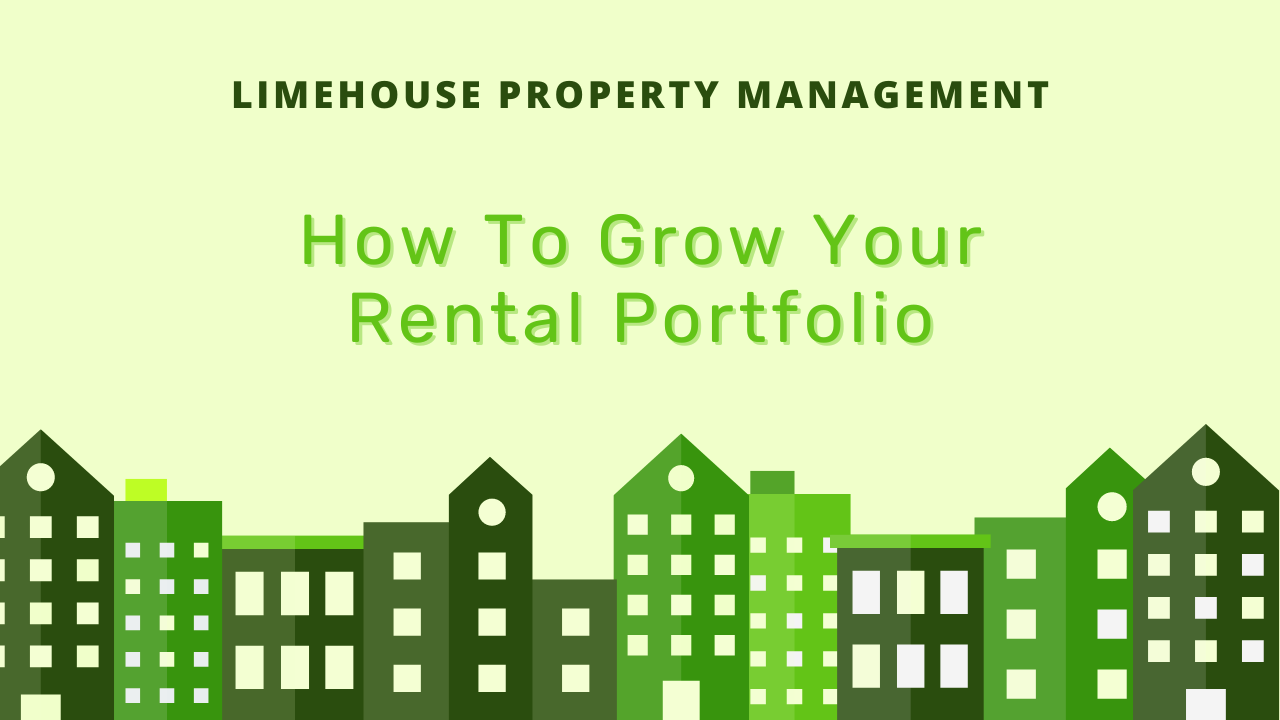How To Grow Your Rental Portfolio

Are you a landlord trying to grow your rental portfolio and advance your real estate endeavors? If so, you’ve come to the correct place! Acquiring properties is only one aspect of building a successful rental portfolio; other key components include strategic growth, long-term planning, and optimizing returns on investments.
This post is filled with helpful pointers and information to assist you successfully and confidently manage the process of expanding your rental portfolio, regardless of your level of experience. Now get a cup of coffee, take a seat, and let’s explore the fascinating world of expanding rental properties!
Strategies for Expanding Your Rental Portfolio
Landlords can use the following recommended techniques to expand their rental portfolio:
1. Setting Strategic Goals
Establishing SMART goals—Specific, Measurable, Achievable, Relevant, Time-bound—is essential to giving your work toward expanding your portfolio focus and direction. A specific goal, such as buying a specific number of properties or earning a particular amount of rental revenue, outlines exactly what you intend to accomplish.
Measurable objectives enable you to monitor progress and evaluate achievement impartially. Make sure your objectives align with your long-term portfolio vision, are reachable, reasonable, and within your means and resources. Lastly, give each goal a deadline to instill a sense of accountability and urgency.
2. Choosing Your Investment Strategy
Choosing the right investment plan is essential to the expansion of your rental business. When choosing your approach, take into consideration factors such as your financial resources, risk tolerance, the state of the market, and your investing objectives.

While fix-and-flip projects can yield immediate gains but need active management and restoration knowledge, long-term buy-and-hold investing offers steady rental income and potential growth over time.
In tourist areas, vacation rentals could generate greater rental yields, although there are seasonal shifts in demand. Carefully consider each strategy, then select the one that best suits your goals and preferences.
3. Evaluation and Management of Risks
Knowing your level of risk tolerance is crucial for making well-informed financial choices and protecting your portfolio from potential risks. Evaluate your ability to handle unforeseen difficulties, financial setbacks, and market volatility.
While adventurous investors could feel comfortable taking on larger levels of risk in exchange for the possibility of greater rewards, conservative investors might favor low-risk, steady assets with moderate returns.
To determine your risk tolerance, take into account many elements such your investing timeline, financial objectives, and personal circumstances. Long-term development of a strong and sustainable rental portfolio requires striking a balance between risk and profit.
4. Diversify Your Portfolio
To reduce risk and maximize returns, diversifying your rental portfolio involves spreading your investments throughout a variety of properties, locations, and asset classes.
Diversifying the properties you own allows you to benefit from different market circumstances and lessen the effect of any one property’s performance on the overall success of your entire portfolio.

A variety of residential, commercial, and multifamily properties, as well as assets in various cities or neighborhoods with various economic drivers, should be taken into consideration when making investments.
To further diversify your portfolio and open up new options, you could also look at alternative real estate investments including crowdfunding platforms, private equity funds, and real estate investment trusts (REITs).
5. Strategies for Growing Portfolios
In order to increase rental revenue, equity, and the value of your portfolio as a whole, growing your rental portfolio entails gradually increasing the number of properties you own. Look for ways to expand your portfolio by making purchases, making repairs, or forming alliances with other investors.
To find new trends, underutilized markets, or distressed assets that are a good investment, do extensive market research.
To finance new acquisitions while optimizing leverage and maintaining liquidity, take use of financing options including mortgages, private loans, or seller financing. To maintain growth momentum, regularly evaluate the performance of your portfolio, make necessary adjustments to your plans, and maintain flexibility in reaction to market conditions.
6. Property Management
Optimizing the performance and profitability of your rental portfolio requires effective property management. Establish effective procedures and methods to manage the leasing, maintenance, rent collecting, tenant screening, and property inspections.

Make use of technological technologies to improve tenant experiences, expedite processes, and reduce administrative workloads, such as online rental platforms, automated communication systems, and property management software.
If you need help monitoring your portfolio, think about outsourcing property management duties to a reputable management firm like Limehouse Property Management.
7. Budgeting and Financial Planning
Creating a thorough budget and financial strategy is necessary for a portfolio to grow successfully. Assessing your income, expenses, assets, and liabilities should be the first step in determining your present financial status.
Determine the amount of money you have to invest and create a budget for buying new homes, remodeling, and continuing costs like property taxes, insurance, and upkeep. To establish a customized financial plan that fits with your investment goals and risk tolerance, think about collaborating with financial advisors or real estate experts.
8. Market Analysis and Research
Finding profitable opportunities for investments and making wise selections require extensive market research and analysis. To assess the overall situation of the real estate market, keep up with local market trends, rental demand, population growth, employment rates, and economic indicators.

To determine the possible return on investment for potential properties, examine comparable property sales, rental rates, vacancy rates, and trends in property appreciation. To obtain market knowledge and remain ahead of the competition, make use of networking relationships, real estate databases, and internet resources.
9. Establishing Networks and Relationships
Developing an extensive network of real estate experts and business associates can offer significant perspectives, prospects, and assistance for expanding your rental holdings. To make connections with other investors, lenders, real estate agents, property managers, contractors, and other important players, go to real estate conferences, seminars, and networking events.
Develop relationships that benefit both parties and are founded on integrity, respect, and common interests. Be proactive in looking for chances for collaboration and suggestions for improvement.
10. Continuous Education and Learning
Maintaining current knowledge of industry trends, best practices, legislative changes, and emerging technology that may affect your rental portfolio requires a commitment to lifelong learning and education.
Attending conferences, seminars, webinars, and training programs on real estate investing, property management, financing, and legal issues is an investment in your career and personal growth.
You can expand your knowledge and put yourself in a successful position as your rental portfolio expands by continuing to be inquisitive, flexible, and proactive in your search for learning opportunities.
Bottom Line
Expanding your rental business needs thoughtful preparation, smart judgment, and ongoing education. Landlords can expand their portfolio by utilizing market information, diversifying their investments, and establishing SMART goals.
Reputable property management firms, such as Limehouse Property Management, can help you maximize returns on investment, optimize tenant happiness, and streamline operations. Landlords may successfully navigate the road of portfolio expansion and long-term success in the real estate market with our property management skills.
Get in touch with us today to get started!
